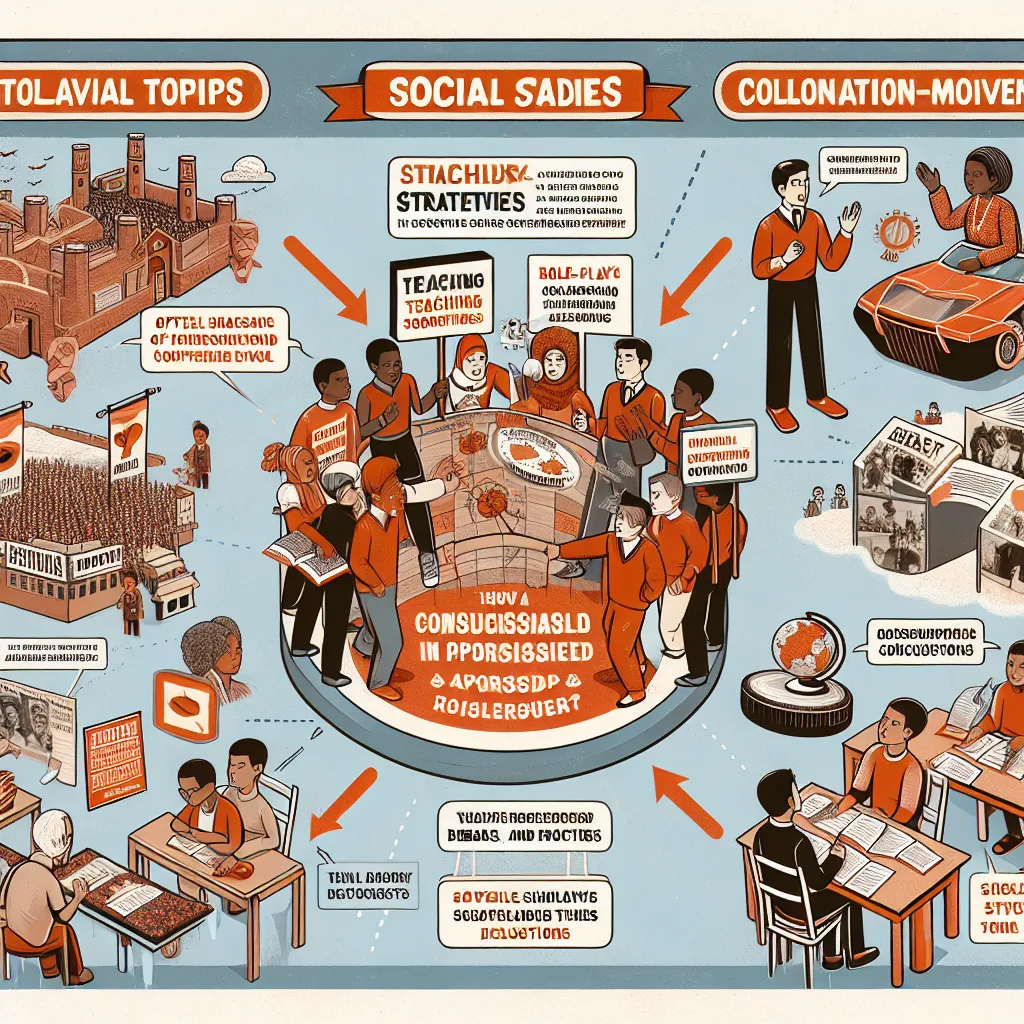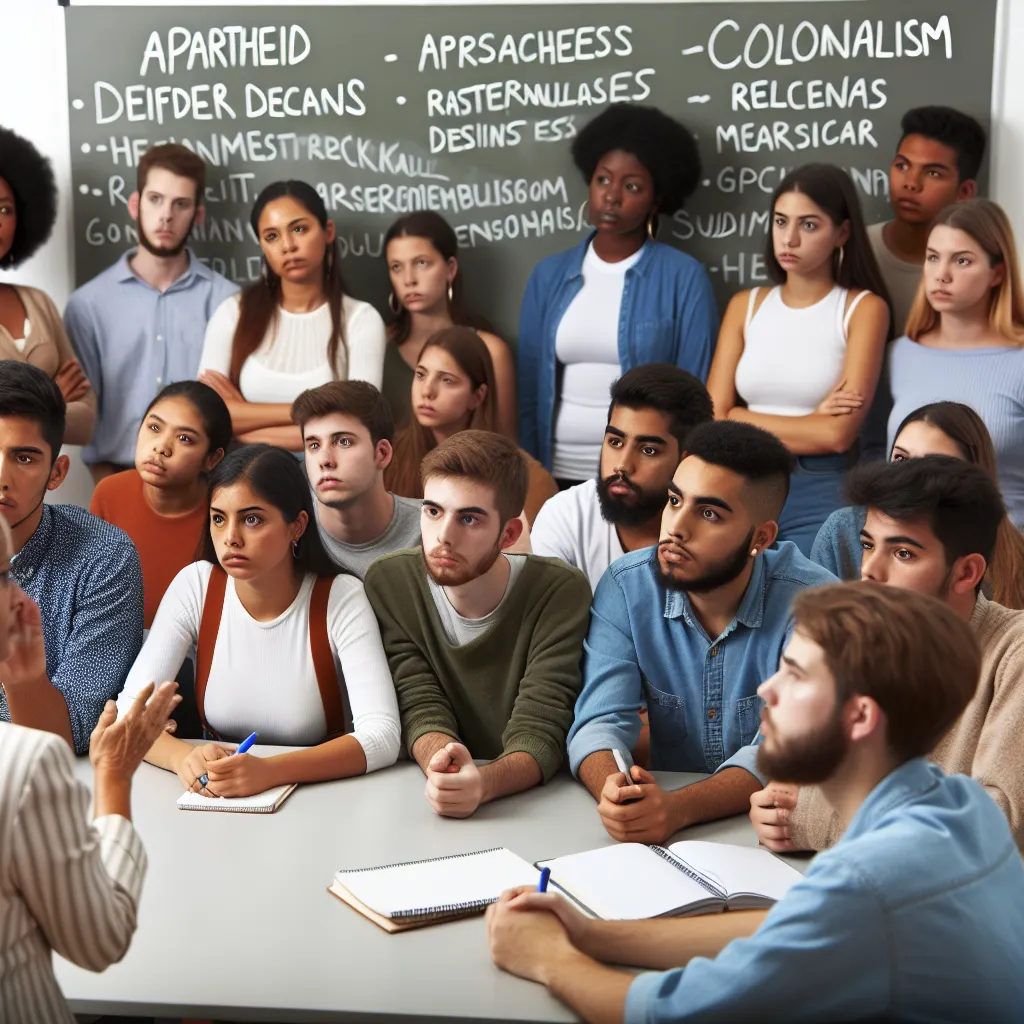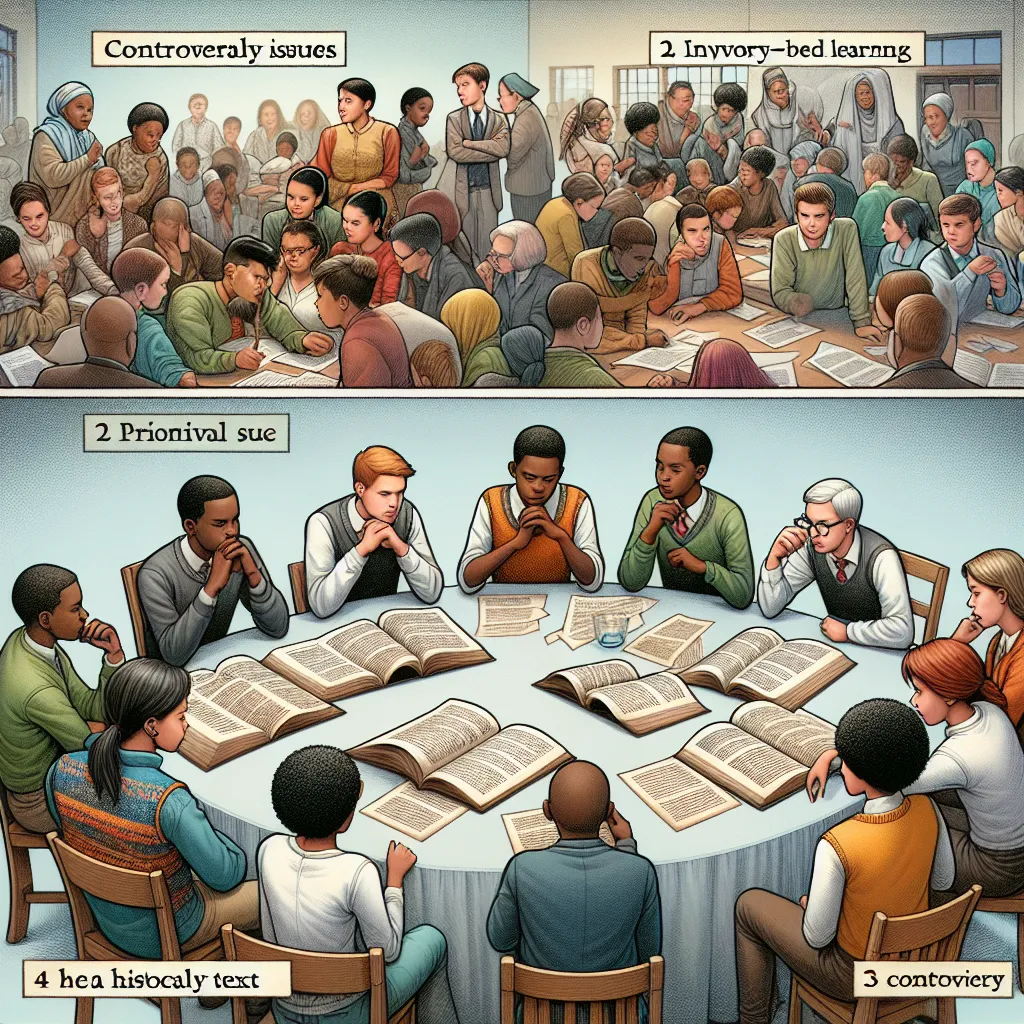Ask AI on The Internet
Question: Teaching Controversial Issues in SS history, Approaches Include examples of controversial topics from CAPS. Please include in-text citations APA 7th referencing style and references
Teaching controversial issues in Social Studies (SS) history can be a challenging yet essential component of education, as it develops critical thinking, empathy, and a deeper understanding of complex societal dynamics. When approaching controversial topics, educators should consider several strategies to create a balanced and thoughtful learning environment. ### Approaches to Teaching Controversial Issues 1. **Create a Safe and Respectful Environment**: - Establish ground rules for discussions to ensure respectful and constructive dialogue. - Encourage an atmosphere where students feel safe to express their opinions and ask questions without fear of ridicule or backlash (Hess & McAvoy, 2015). 2. **Present Multiple Perspectives**: - Introduce various viewpoints to help students understand the complexity of controversial issues. - Use primary and secondary sources from different perspectives to give a well-rounded view of the topic (Fogo, 2014). 3. **Encourage Critical Thinking**: - Foster analytical skills by encouraging students to evaluate the credibility of sources and the strength of arguments. - Use critical questions to guide discussions and promote deeper thinking (Parker, 2006). 4. **Relate to Students' Lives**: - Connect historical issues to present-day contexts to make the content more relevant and engaging. - Encourage students to draw parallels between historical events and current societal issues (Levstik & Barton, 2011). 5. **Use Inquiry-Based Learning**: - Allow students to explore controversial topics through inquiry-based learning, where they investigate questions, gather information, and form their conclusions. - Promote independent research and group projects to explore different aspects of a topic (Saye & Brush, 2006). 6. **Be Mindful of Bias**: - Reflect on your own biases and strive to present information in a balanced way. - Encourage students to recognize and question biases in their sources and themselves (Noddings, 2013). ### Examples of Controversial Topics from CAPS (Curriculum and Assessment Policy Statement) in South Africa 1. **Apartheid and Its Legacy**: - The history of apartheid, its policies, impact on society, and the ongoing effects on post-apartheid South Africa remain deeply controversial. - Discussions about the roles of different groups, the resistance movements, and the reconciliation process are crucial (Department of Basic Education, 2011). 2. **Land Reform and Redistribution**: - Debates around land ownership, historical dispossession, and current land reform policies are contentious. - This topic addresses economic disparities and social justice issues linked to historical land seizures (Department of Basic Education, 2011). 3. **Colonialism and its Impact**: - Examining the legacy of colonialism, including economic exploitation, cultural impacts, and resistance by indigenous populations. - Discussions can include the long-term consequences of colonial rule on present-day economic and political systems (Department of Basic Education, 2011). 4. **Gender and Social Equality**: - Issues related to gender roles, gender-based violence, and the fight for gender equality are critical and controversial. - This topic can include discussions on patriarchy, feminist movements, and contemporary gender issues (Department of Basic Education, 2011). 5. **Ethnic and Racial Tensions**: - The study of ethnic conflicts, racial discrimination, and efforts towards national unity and reconciliation. - Exploring historical and ongoing racial tensions can help students understand and address prejudice and inequality (Department of Basic Education, 2011). ### References Department of Basic Education. (2011). *Curriculum and Assessment Policy Statement Grades 10-12: History*. Pretoria: Department of Basic Education. Fogo, B. (2014). Core practices for teaching history: The results of a Delphi panel survey. *Theory & Research in Social Education, 42*(2), 151-196. Hess, D. E., & McAvoy, P. (2015). *The political classroom: Evidence and ethics in democratic education*. Routledge. Levstik, L. S., & Barton, K. C. (2011). *Doing history: Investigating with children in elementary and middle schools* (4th ed.). Routledge. Noddings, N. (2013). *Education and democracy in the 21st century*. Teachers College Press. Parker, W. C. (2006). Public discourses in schools: Purposes, problems, possibilities. *Educational Researcher, 35*(8), 11-18. Saye, J. W., & Brush, T. (2006). Scaffolding critical reasoning about history and social issues in multimedia-supported learning environments. *Educational Technology Research and Development, 54*(3), 267-285.
Think your answer is better than the AI's? Post it below.
Other Most Relevant Posts:
Question Tags
If you want your question answered by an AI, click here.







Post your own comment: